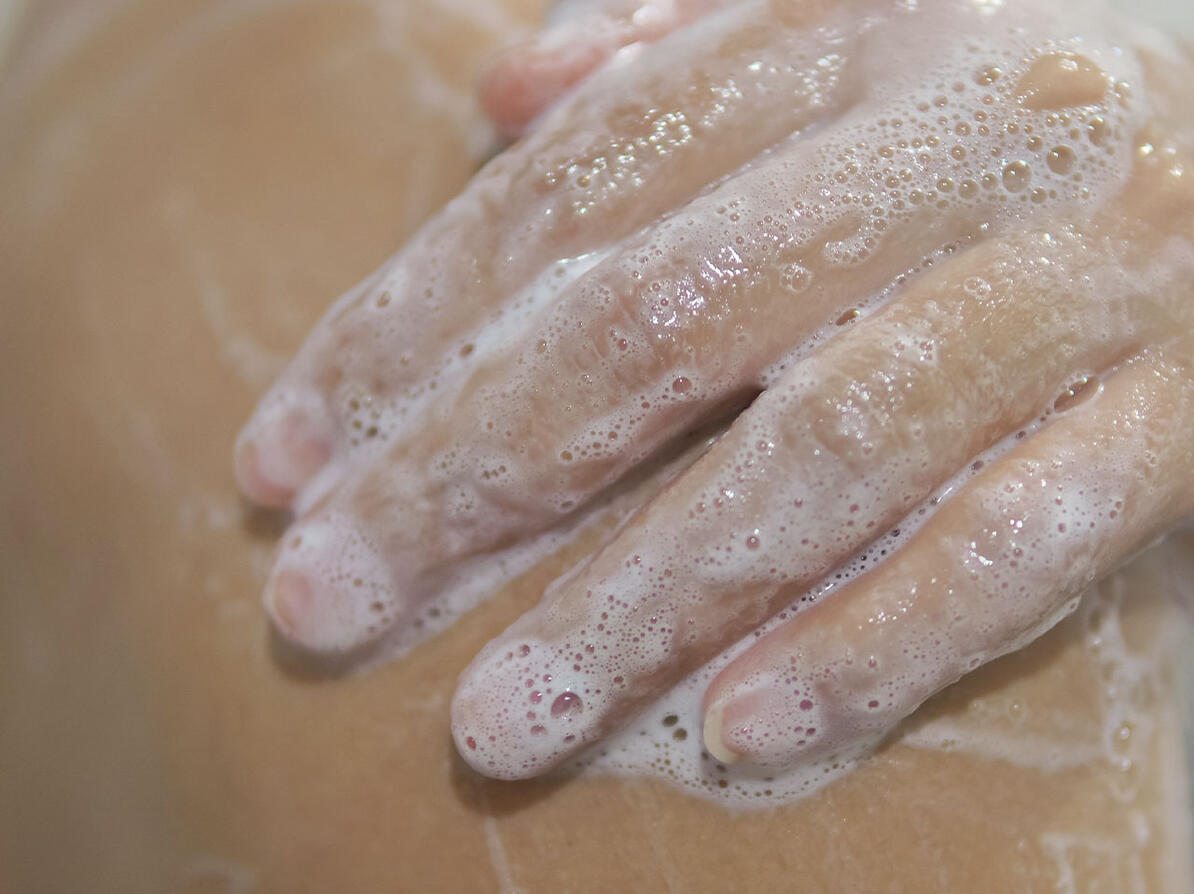Intimate soap: Several good chemical choices, but is it good to use?
The Danish Consumer Council THINK Chemical has checked the ingredients on intimate soaps and found several good chemical choices. However, remember to consider the use of intimate soap, as the mucous membranes are delicate.

The vast majority of intimate soaps in the chemical test are free of unwanted substances such as suspected endocrine disruptors and perfumes.
The Danish Consumer Council THINK Chemical's test shows that 25 out of 34 products are without these chemical substances.
Intimate soaps may contain perfume
Seven intimate soaps in the chemical test contain perfume and cannot be recommended because the mucous membranes are delicate.
If you wash the genitals with perfumed soap, then, according to gynecologists, it can create an imbalance and cause irritation, altered vaginal discharge, itching, burning, rash or pain.
In general, perfumes can be allergenic and are therefore important to be aware of in products intended for the skin. Especially when it comes to very sensitive skin.
Suspected endocrine disruptors have been found in intimate soap
Some products in the test receive the lowest chemical rating, the C-rating, because they contain particularly problematic substances.
This concerns a product from Sanex containing sodium salicylate, which is a suspected substance harmful to reproduction.
The intimate care brand Vivag has an intimate soap with BHT, which is a suspected endocrine disruptor. However, at the same time as the test was released Vivag has launched a new version of this intimate soap without BHT. Thus, both products are included in the test, as you can find both versions in the stores.
Do you need to use intimate soap?
Even if an intimate soap gets the good chemical A-rating in the chemical test, it is still a good idea to consider the use of soap when you need to wash your genitals.
The abdomen is extra sensitive and gynecologists therefore advise that you just wash yourself with slightly warm water to avoid disturbing the natural balance.
When washing the genitals, it can contribute to an imbalance in the pH and the bacterial flora that is normal for the area. We therefore recommend that you just wash or rinse once a day - and just with water. Soap can disturb the bacterial flora and there is no need to use soap. Plain water is sufficient. Annemette Wildfang Lykkebo Chairman of the Danish Society for Obstetrics and Gynecology
Good chemical advice for intimate care
- Wash with lukewarm water instead of intimate soap to avoid disturbing the natural balance.
- If you use intimate soap, choose a product with the A-rating from our chemical test or in the Kemiluppen app.
- Look for the Nordic Ecolabel and the allergy labels, which also guide you to good chemical choices.
About the test
-
The Danish Consumer Council THINK Chemical has purchased a number of intimate soaps in the Danish retail trade, both in stores and online.
We have contacted the companies to check wether the ingredient lists are correct and that the products are not outdated.
We have reviewed the ingredient lists for problematic substances – e.g. allergens or suspected endocrine disruptors
-
34 products are included in the test. How they are distributed:
- 25 products are free of a number of problematic chemicals and receive the best chemical rating - the A-rating.
- 7 products contain perfume / plant extracts that can cause allergies and get the average chemical rating - the B-rating.
- 2 products contain substances that can be problematic and receive the lowest chemical rating - the C-rating.
Chemicals that trigger C-rating in the test:
- Sodium salicylate is suspected to impair fertility. The substance is included in 1 product.
- BHT is suspected to be endocrine disrupting. It is included in 1 product. The product is on its way out of the market, and will be replaced by a product without BHT.
We have also noted the pH of the products. The vast majority of products have a pH around 4, but there is also a product that states pH 5-5.5.
There are also a number of products with no pH stated on the label. Some of these state that the product has an adjusted pH, but they do not tell what it is.